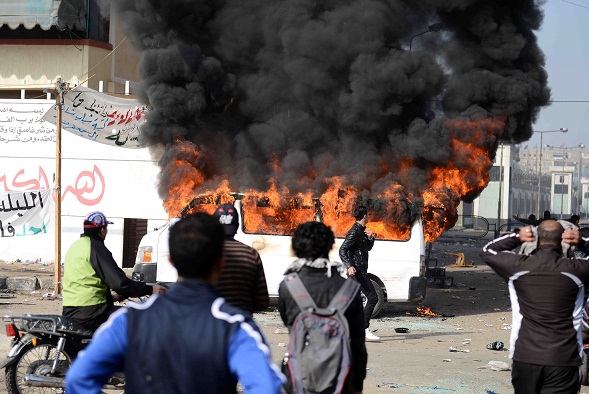Government looks to industrial contribution to GDP for future growth
CAIRO: Egypt is less likely to reap the benefits of the latest increase in total Arab gross domestic product, says economist Galal Amin.
Amin was commenting on a report published Sunday that said that a sharp rise in global oil prices contributed to the increase in GDP of Arab states last year.
The GDP of the 22-member Arab League countries reached $1.05 trillion (over LE 6 trillion) at the end of 2005, a $180 billion (LE 1.03 trillion) increase from the previous year and a new record, said Ahmed Gweili, chairman of the Arab Economic Unity Council.
High oil prices in the past two years have brought additional billions of dollars to the coffers of some Arab states, mainly in the Gulf, leading to a boom in stock markets, real estate prices and budget surpluses.
“Actually, it’s very insignificant for Egypt, says Amin. He explains that in the past year Egypt saw a GDP increase of only 5 percent despite the hike in oil prices.
Oil and other related products constitute just under one third of the country’s exports, he said.
“Egypt imports and exports oil, he adds, “The net impact [of the increase in oil prices] isn’t that great.
The Arab League includes countries with huge oil reserves including Saudi Arabia, the world s largest oil producer, as well as the United Arab Emirates, Kuwait, Iraq and Qatar. But the region, with a population of about 300 million, also includes poor countries such as Somalia and Djibouti.
Egypt, with its sizable oil production reaching $4.2 billion (LE 24.1 billion) in 2003-2004, isn’t classified under the latter category.
Amin explains that there are only two ways that countries could benefit from their neighbors’ economic growth: investment and absorption of labor. But unfortunately these two channels are not as strong as they were in the 1970s, he adds.
“The increase would have been more welcome if the Arabs’ relationships with each other were stronger, he said. “The situation is grimmer now.
Aside from less cooperation, in comparison to the 1970s, Amin points to other factors that limit the benefits some countries like Egypt would acquire through their neighbors’ GDP growth.
“The absorptive capacities of these [oil-rich] countries [employment wise] are very limited, he explains. Also, due to their small populations and “poverty in other raw materials, the opportunities for investing this new wealth are limited.
But Samir Radwan, managing director of the Egyptian economic research forum, points to a number of local projects that have benefited from “heavy investment from Arabian Gulf countries. He notes UAE-based developer Emaar’s real estate project on the North Coast and the LE 16.7 billion Etisalat investment in a third mobile license in Egypt.
“It’s what we call the spill over effect, he told The Daily Star Egypt.
Radwan believes the government is utilizing its oil revenues and economic growth in developing other sectors such as real estate, the services industry, tourism and industry.
He pointed to several projects, in which the government has managed to attract foreign investment in industrial projects; the under-construction Chinese industrial zone is one such project.
The government plan to increase industrial contribution to the GDP by 2011 is doable and is moving on the right track, he added. It has already managed to contribute to the pan-Arab increase in GDP by its own economic growth in the fiscal year 2005-2006. With Agencies

